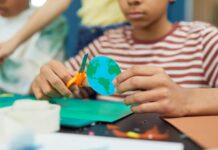
How do I develop myself?
Introduction
Self-development is a journey of continuous growth and improvement. It involves consciously enhancing various aspects of oneself to reach personal goals and achieve fulfillment. Whether it’s improving skills, overcoming challenges, or enhancing well-being, developing oneself is a fundamental aspect of leading a meaningful life.
Setting Goals for Self-Development
The first step in self-development is setting clear and achievable goals. It’s essential to identify areas for improvement and establish specific, measurable, achievable, relevant, and time-bound (SMART) goals. Whether it’s advancing in your career, improving relationships, or enhancing personal skills, setting goals provides direction and motivation for growth.
Developing Self-Awareness
Self-awareness is crucial for self-development. It involves understanding one’s emotions, strengths, weaknesses, and motivations. Techniques such as mindfulness, journaling, and seeking feedback from others can help improve self-awareness. By knowing oneself better, individuals can make informed decisions, manage emotions effectively, and foster personal growth.
Cultivating a Growth Mindset
A growth mindset is essential for embracing challenges and setbacks. Instead of fearing failure, individuals with a growth mindset see it as an opportunity for learning and growth. By reframing failures as stepping stones to success, individuals can develop resilience, perseverance, and a positive attitude toward self-improvement.
Seeking Knowledge and Skills
Continuous learning is vital for personal development. Whether through formal education, online courses, or self-study, acquiring new knowledge and skills opens up opportunities for growth and advancement. By staying curious and open-minded, individuals can adapt to changing circumstances and expand their capabilities.
Building Resilience
Resilience is the ability to bounce back from adversity and setbacks. It involves developing coping strategies, managing stress effectively, and maintaining a positive outlook in challenging situations. By building resilience, individuals can navigate obstacles with confidence and emerge stronger from difficult experiences.
Establishing Healthy Habits
Maintaining a balanced lifestyle is essential for overall well-being and self-development. This includes practicing self-care activities such as exercise, proper nutrition, and sufficient sleep. By prioritizing health and wellness, individuals can improve their physical and mental resilience, leading to greater productivity and satisfaction.
Surrounding Yourself with Positivity
The people and environment we surround ourselves with significantly impact our development. Building a supportive network of friends, family, and mentors can provide encouragement, guidance, and accountability on the journey of self-improvement. Creating a positive and nurturing environment fosters personal growth and helps individuals stay motivated toward their goals.
Practicing Gratitude
Cultivating gratitude is a powerful tool for self-development. By focusing on the positive aspects of life and expressing gratitude for blessings, individuals can shift their perspective and enhance their overall well-being. Regularly practicing gratitude can improve mood, reduce stress, and increase resilience in the face of challenges.
Taking Action and Staying Consistent
Taking action is essential for translating goals into reality. Overcoming procrastination and taking consistent steps toward personal growth is key to success. By breaking down goals into manageable tasks and staying committed to the process, individuals can make meaningful progress toward their aspirations.
Evaluating Progress and Adjusting Strategies
Regularly evaluating progress is crucial for effective self-development. Tracking achievements, reflecting on experiences, and adjusting strategies as needed ensures continuous improvement. Flexibility and adaptability are essential qualities for navigating the ups and downs of the self-development journey.
Conclusion
Self-development is a lifelong journey that requires dedication, perseverance, and self-awareness. By setting goals, cultivating a growth mindset, seeking knowledge and skills, establishing healthy habits, and surrounding oneself with positivity, individuals can unlock their full potential and lead fulfilling lives.
What is Life Personal Development?
What are the Six Aspects of Personal Development?
Key Elements of Personal Development
What Are the Three Types of Personal Growth?
What Are the Four Types of Self-Development?
FAQs
- What are some common barriers to self-development?
- Lack of motivation, fear of failure, and limiting beliefs are common barriers to self-development. Overcoming these obstacles requires self-awareness, resilience, and a willingness to step out of comfort zones.
- How can I stay motivated during the self-development process?
- Setting specific and achievable goals, celebrating small victories, and surrounding yourself with supportive individuals can help maintain motivation. Additionally, regularly reminding yourself of the reasons behind your goals and the benefits of personal growth can provide the necessary encouragement to keep going.
- Is it ever too late to start working on self-development?
- It’s never too late to begin the journey of self-development. Regardless of age or circumstances, there are always opportunities for growth and improvement. The key is to take small, consistent steps toward personal goals and remain open to learning and change.
- How long does it take to see results from self-development efforts?
- The timeline for seeing results from self-development efforts varies depending on individual goals, circumstances, and commitment levels. While some improvements may be noticeable relatively quickly, significant progress often takes time and consistent effort. Patience, perseverance, and a focus on continuous improvement are essential for long-term success.
- What role does self-reflection play in self-development?
- Self-reflection is a critical aspect of self-development as it allows individuals to assess their progress, learn from experiences, and make adjustments to their strategies. Taking time to reflect on strengths, weaknesses, and areas for improvement enables individuals to refine their goals and approach to personal growth.






















